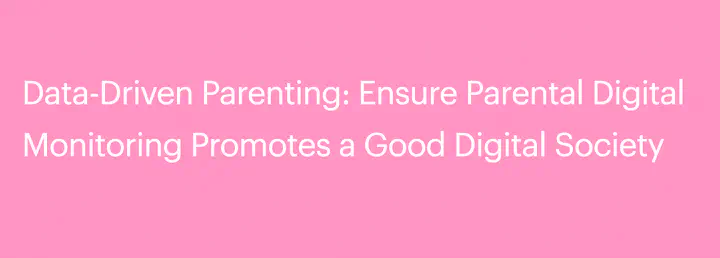Data-Driven Parenting: Robust Research and Policy Needed to Ensure that Parental Digital Monitoring Promotes a Good Digital Society
 Report for the British Academy - ‘What Makes a Good Digital Society’
Report for the British Academy - ‘What Makes a Good Digital Society’Abstract
Digital monitoring technologies are providing parents with unprecedented abilities to oversee and limit their children’s online and offline behaviours. Where previously caregivers primarily relied on direct verbal communication with children to gather information, they now commonly shift towards using digital monitoring technologies to achieve the same aims (namely, information gathering and safeguarding) – often without their children’s awareness or consent bringing significant implications for the family system, children’s well-being, and children’s rights. Their widespread use has significant implications on the overall well-being of our digital society. While these technologies are aimed at increasing children’s safety and helping parents to feel secure, the supporting evidence for their efficacy is limited. At the same time, the risks associated with these technologies, such as their potential to undermine trust within families and disrupt children’s developing self-regulation, are pronounced. With parents increasingly relying on digital monitoring as part of caring for their children, it is imperative to understand the implications of such technologies and to develop best practice recommendations for parents. In this paper, we provide a synthesis of critical future research directions in this space and propose policy recommendations, to facilitate the development and agenda-setting of digital parenting solutions that prioritise children’s privacy while promoting the digital well-being of our society.